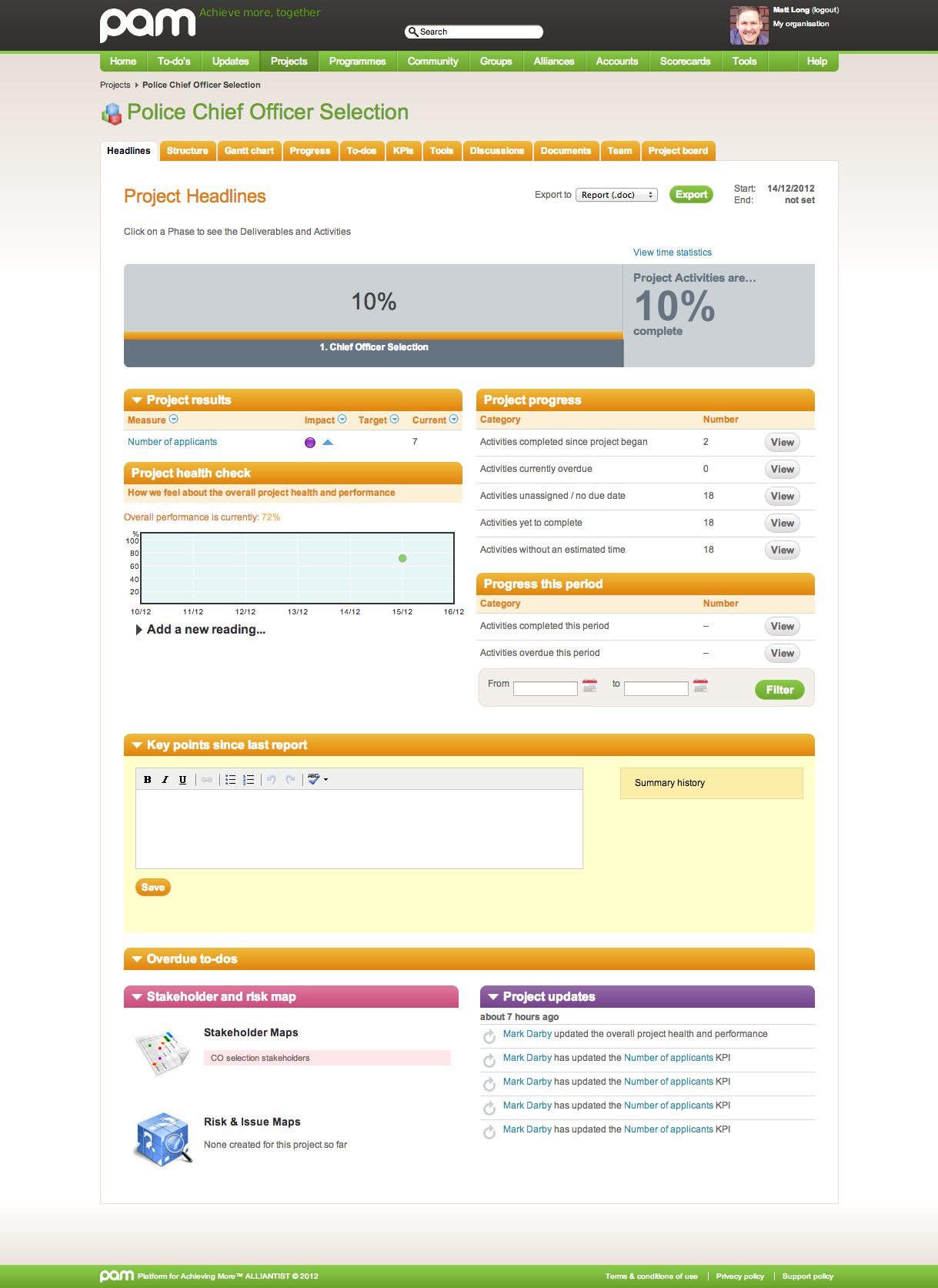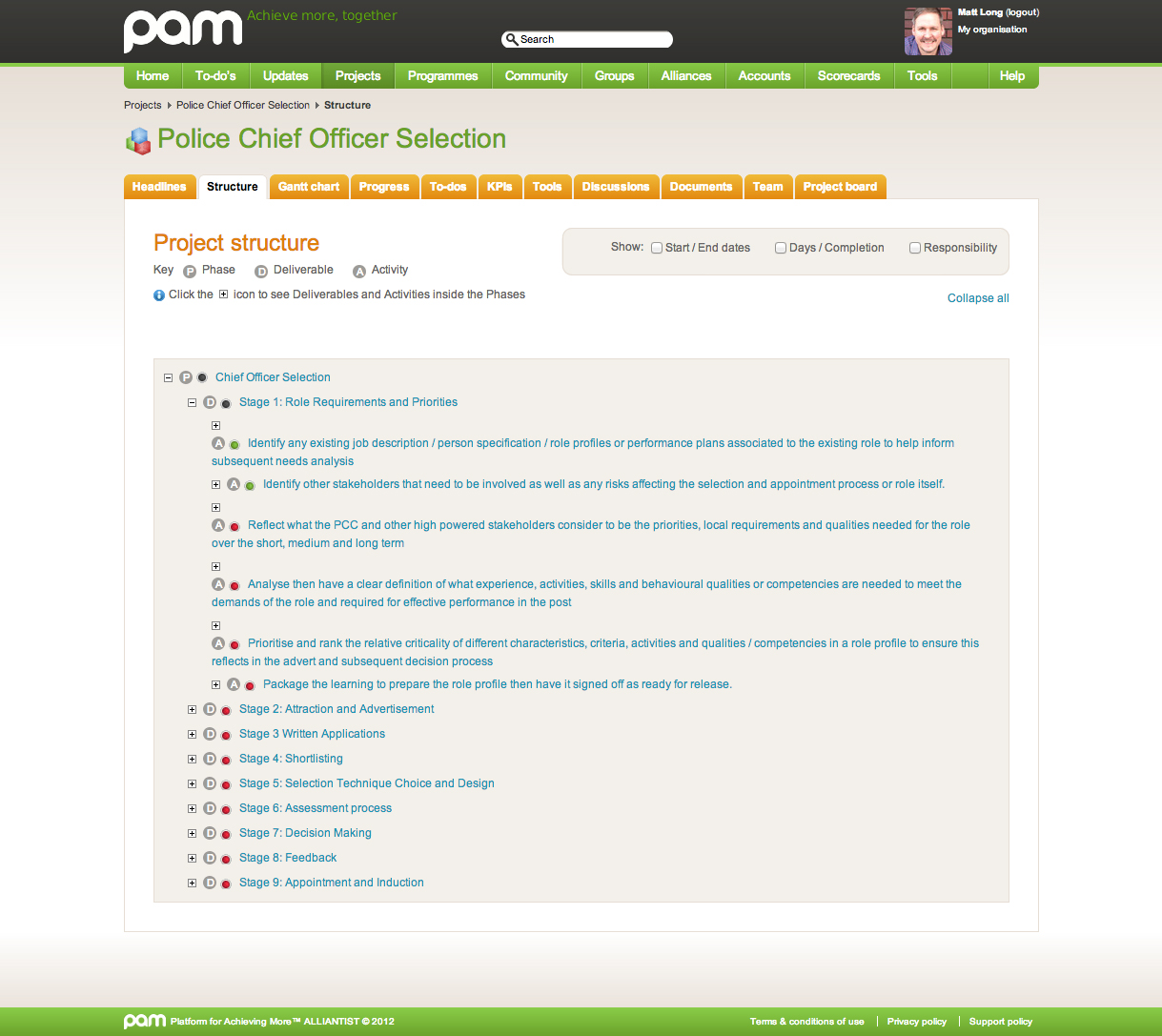
Police and Crime Commissioners have been offered guidance about selecting their chief constables from the National College of Policing (NCP) – no bad thing, considering there are 13 vacant posts.
The NCP has put together best practice guidelines to ensure the appointments are made on the principles of merit, fairness and openness, and has also created a ‘toolkit’ for the selection process.
The eight-stage selection process outlined in the documents takes the PCCs through establishing the role requirements, checking applications, shortlisting, interviews, assessment, decision making and feedback. You can download the document, here.
With Alliantist’s stated goal of helping achieve new ways of working, this is a perfect example of an initiative that can be enabled by pam, our platform for change and relationship success.
And while pam is used by many organisations for individual change (e.g. recruitment, induction, personal development and has already been used at board level) its versatility in use means it comes without the cost of a specialist HR platform. Its flexible architecture is perfect for both personal and organisational change as well as wider relationship engagement – and this makes it a compelling platform. As a software service, users can be up and running in just minutes, and because pam is a low cost subscription for organisations like PCCs, yet offers so many benefits, the return on investment is significant.
As an illustration, we’ve created a demo version of the selection process in pam, screenshots of which you can see in this blog. If you want to see the demo in action, keep an eye out for a webinar we are hosting in the New Year, or contact us now for early access.

We’ve used the richness of the content and structure within the NCP toolkit and joined it to work with our complementary capability. Now users can get the best from the toolkit within an easy-to-use platform that has our stakeholder, risk and selection assessment wrapped within a simple delivery framework to drive the selection to a positive conclusion quickly.
pam can also help with the process after an employment decision has been made. This is where the chiefs and PCCs can collaborate closely on a pam induction project after an appointment has been made to fully integrate and harmonize the aims outlined in the Police and Crime Plan with the priorities for the new chief.
We hope this snapshot of pam and its use in just one important aspect of the PCCs role, shows how new ways of working can create fair and visible processes to shine a light on performance, enabling the best possible decision making and outcomes from the selection.
The publication of these guidelines comes hot on the heels of last weeks event hosted by the Policy Exchange, called What Should Policing in England and Wales Look Like in 2020?
As mentioned in Mike Alderson’s blog, on the panel offering their thoughts was Hampshire Constabulary Chief Constable (and soon to be Chief Executive of the new College of Policing) and Head of the ACPO Futures Portfolio, Alex Marshall.
The Chief Constable said that in the future he sees self-sufficient, locally-based constables whom are able to interact with force systems remotely with little or no back office support. And he added that the service can’t afford not to use technology more effectively to change the way that work is carried out and there may well need to be an ‘invest to save’ approach taken.
The present and future of policing is going to have to embrace new technology, new ways of working, and more interactive ways of partnering, as both of the above developments attest to.

